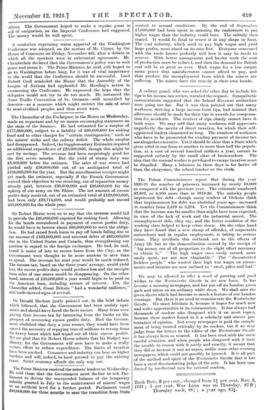The Prison Commissioners report that during the year 1920-21 the
number of prisoners increased by nearly 10,000 as compared with the previous year. The criminals munbered 42,802, or 8,500 more than in 1919-20. The unlucky people imprisoned for debt—though many readers of Dickens think that imprisonment for debt was abolished years ago—increased in number from 2,819 to 5,204. Yet the Commissioners think that the increase was far smaller than might have been expected, in view of the lack of work and the industrial unrest. The unemployment dole, they say, and the better condition of the working class helped to keep crime down. On the other hand they have found that a new stamp of offender, of respectable antecedents and in regular employment, is taking to serious crime. They attribute this outbreak not to the effects of Army life but to the demoralization caused by the receipt of " big money out of all proportion to the slight effort necessary to obtain it." " The high wages once easily earned, more easily spent, are not now obtainable." The " discontented feckless people " who wasted their high war wages on amuse- ments and luxuries are now inclined to " steal, pilfer and loaf."






































 Previous page
Previous page